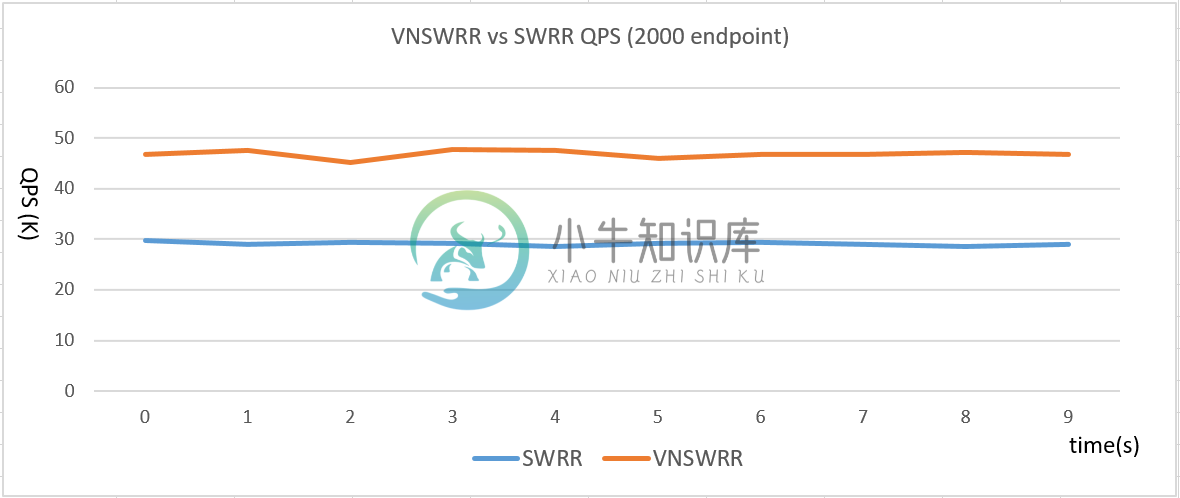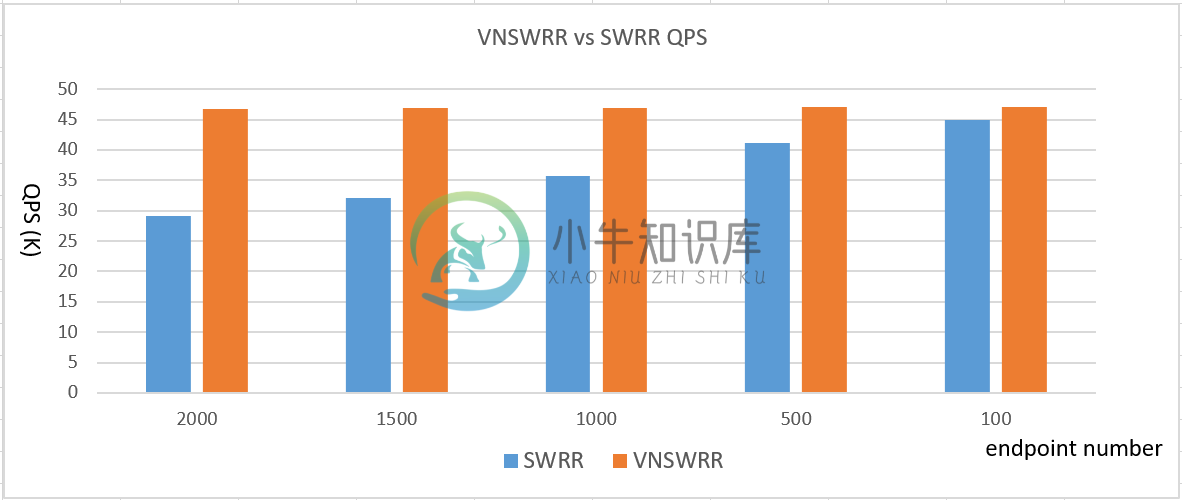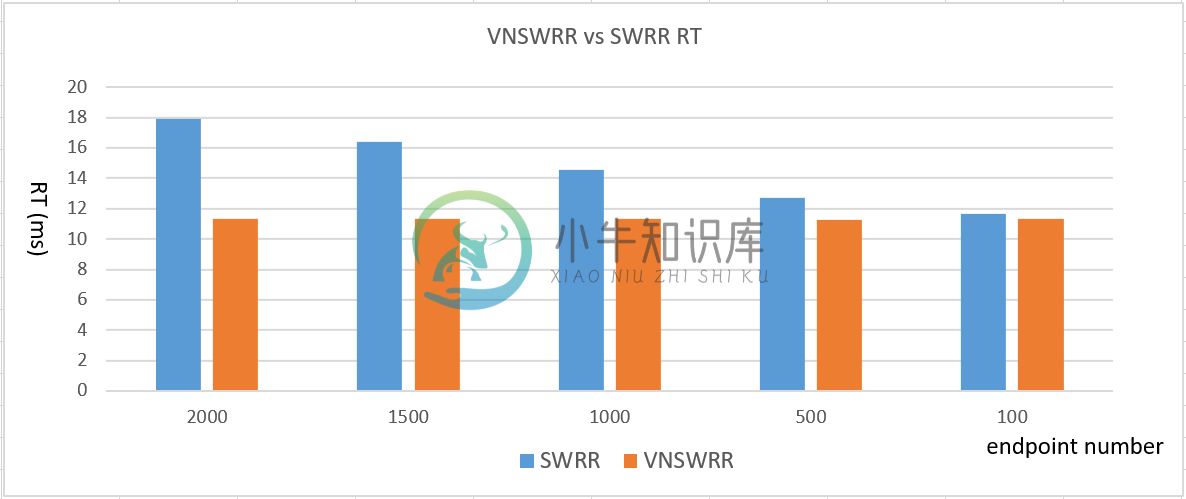ngx_http_upstream_vnswrr_module
ngx_http_upstream_vnswrr_module.
Introduction
The VNSWRR module is an efficient load balancing algorithm that is smooth, decentralized, and high-performance compared to Nginx's official SWRR algorithm.
Example
http {
upstream backend {
vnswrr; # enable VNSWRR load balancing algorithm.
127.0.0.1 port=81;
127.0.0.1 port=82 weight=2;
127.0.0.1 port=83;
127.0.0.1 port=84 backup;
127.0.0.1 port=85 down;
}
server {
server_name localhost;
location / {
proxy_pass http://backend;
}
}
}
Installation
Build Tengine with this module from source:
./configure --add-module=./modules/ngx_http_upstream_vnswrr_module/ make make install
Directive
vnswrr
Syntax: vnswrr Default: none Context: upstream
Enable vnswrr load balancing algorithm.
Performance
In the same pressure environment (wrk, 500 concurrency, keepalive, 2000 endpoint), the CPU consumption of VNSWRR algorithm accounts for 0.27% ( ngx_http_upstream_get_vnswrr). Compared with VNSWRR algorithm, the CPU consumption of SWRR (ngx_http_upstream_get_peer 39%) is an order of magnitude higher than VNSWRR.

In the above environment, the QPS of VNSWRR increases by 60% compared with SWRR algorithm.

Observing the changes of QPS and RT in the different back-end number scenarios. Under SWRR algorithm, when the number of back-end for every 500 addition, then the QPS of Nginx decreases by about 10% and RT increases by about 1 ms. But under the VNSWRR algorithm, QPS and RT do not change much.



